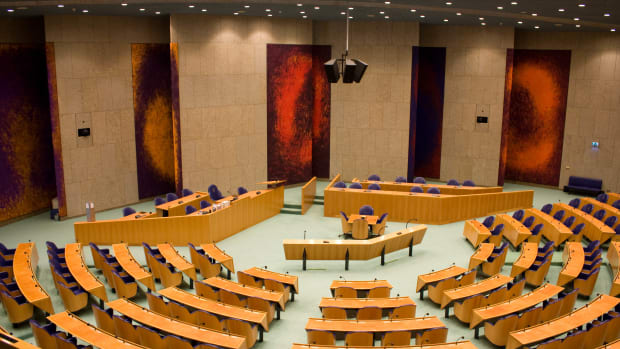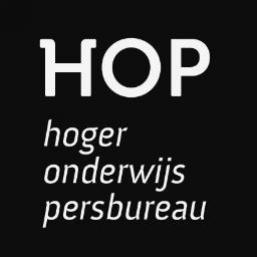
Coalition agreement: Tough cuts and penalty for long-term students in higher education
Fewer foreign students, hefty cuts in higher education and science, and extra money for the lost generation. These are some of the intentions of the coalition agreement outline of the PVV, VVD, NSC, and BBB parties.
Last night, the VVD faction of the House of Representatives also approved an agreement to form a new cabinet. Earlier, the parties of PVV, NSC, and BBB did the same. So there is now an agreement outline.
Fewer student migrants
The four parties believe that fewer foreign students should come to the Netherlands. They want to save €293 million per year on higher education.
It mainly concerns a restriction of study migration in bachelor’s programs, “except studies where there are labor market shortages, taking into account local circumstances,” states the agreement.
So for now, master’s programs remain unaffected. The question, however, is who will determine the exceptions and what local conditions may play a role. The parties say they want to reach an administrative agreement.
They also want a numerus fixus for foreign students, a “restriction on obtaining a basic scholarship” for European students, and an “increase in tuition for non-EU students.”
Students
A total of €1.4 billion has been earmarked for additional relief for the lost generation. This will presumably come in place of lower interest rates on student debt, which was previously under discussion.
But there are also hefty cuts for students. The penalty for long-term students returns. Students will have to pay an additional €3,000 in tuition if they overstay their bachelor’s or master’s degree. This will eventually generate more than €280 million per year, the four parties estimate.
Financial assistance for students will also be made more austere. Students will no longer receive an allowance if they study abroad. This applies both to exchange students and to students who study abroad for their entire degree. This amounts to about €30 million per year.
Another intention in the agreement: “The binding study advice will not be relaxed and selection during the admissions process remains possible without prejudice.” So this remains unchanged.
Science
Science will get the axe. The four parties want to remove funding (€215 million per year) for the national sector plans, which foresee agreements between universities on their education and research.
The Research and Science fund must cut €1.1 billion in the coming years. The National Growth Fund, which was intended to strengthen the knowledge economy, had already been discontinued and remains so. This means a cut of €6.8 billion over the next 10 years.
Knowledge migration
Foreign workers with specialized knowledge will soon also have a harder time entering the country. “The qualification requirements of the knowledge migrant scheme will be tightened and increased.”
Language
Study migration will automatically become “more selective,” the parties believe, if there is “more instruction in Dutch.” Again, the question remains as to who is pulling the strings: the training programs themselves or the minister?
Elsewhere it says: “Promoting Dutch language skills will again become a core task of knowledge institutions in Higher Education. ‘Englishification’ will be reduced, with
strategic exceptions for programs for professions with shortages.”
Knowledge security
Knowledge security will also be addressed. “The Netherlands must not be naïve about state actors sending people here or targeting people here for espionage,” the parties believe. “Measures are being taken to protect our knowledge.”
“Tackling digital threats by state actors and cyber criminals will be strengthened,” one of the items stated. “We will promote intensive cooperation between government, security services, science, and industry.”
System of funding
Higher education funding will become somewhat less dependent on the number of students. This is important for institutions facing a decline in student numbers, especially in areas that are shrinking.
The implications depend on how the agreement is finalized, but it says: “For higher education funding, we are partially switching to capacity funding to maintain programs important for the labor market or the region with declining student numbers.”
PABO
To combat the teacher shortage in primary education, the four parties want, among other things, “more men in the classroom by introducing separate courses for younger and older children in the PABO (training program to be primary education teacher).”
The idea is that men have less appetite for an apprenticeship with toddlers and will soon be able to focus entirely on upper grades. The House of Representatives just passed a motion on this and received a critical response from outgoing minister Robbert Dijkgraaf.
How to move forward?
Now that the agreement outline is in place, the coalition negotiator must assemble a government team. None of the four group chairpersons will take a seat in the cabinet, according to the coalition negotiator’s final report.
Geert Wilders will therefore not become prime minister. In recent days, the name of Ronald Plasterk, former Minister of Education and Interior Minister, who once made a bid for the leadership of the PvdA, has been floated.
Plasterk is a biologist and won the Spinoza Prize, the Netherlands’ highest scientific award. He was recently in the news because he made a lot of money on a patent to which someone else might be entitled.
He became the coalition negotiator in December after PVV senator Gom van Strien resigned his post when it became known that his former employer, affiliated with Utrecht University, had filed fraud charges against him.

